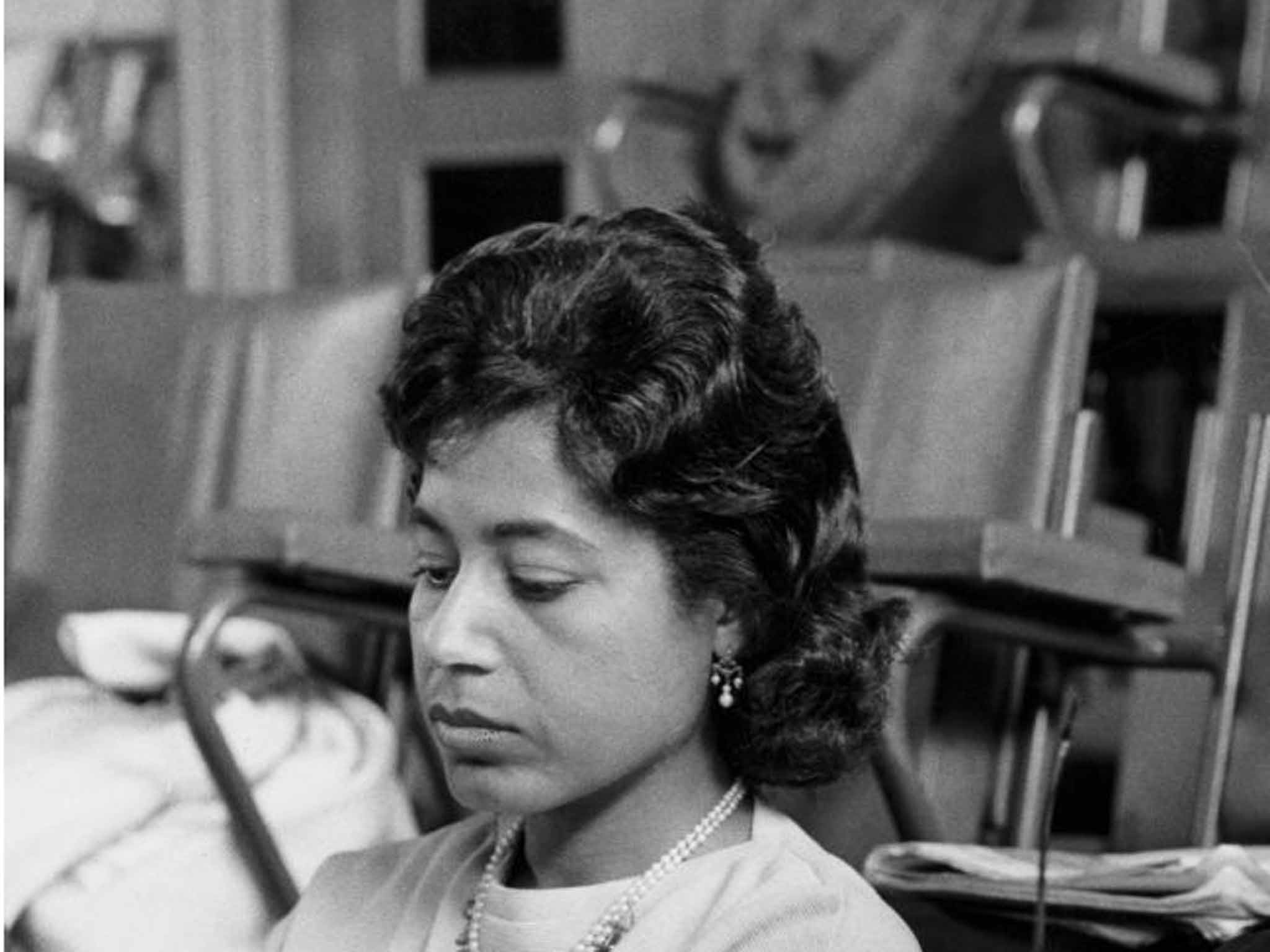Mattiwilda Dobbs: Pioneering soprano whose 1950s appearances helped break opera's colour barrier
She refused to perform for segregated audiences and did not sing in Atlanta until the Municipal Auditorium was desegregated in 1962

Mattiwilda Dobbs was only the third African-American singer to appear at the Metropolitan Opera, New York – preceded in 1955 by the contralto Marian Anderson and by the baritone Robert McFerrin – and the first to be offered a long-term contract with the company.
She made her Met debut as Gilda in Verdi's Rigoletto on 9 November 1956 and in eight seasons sang 29 performances of six roles, including Zerbinetta in Ariadne auf Naxos, Oscar (the pageboy in Un ballo in maschera), Olympia (The Tales of Hoffmann), Zerlina and Lucia.
Her career was already well-established however, for in 1952 she had sung Stravinsky's Nightingale at the Holland Festival with the Royal Dutch Opera, as well as giving recitals in Sweden, France (Paris), and the Netherlands, and the following year she appeared at La Scala, gave recitals in England and on the Continent, and began an association with Glyndebourne Opera and Covent Garden that continued throughout the 1950s and early 1960s.
At Covent Garden she took part in a Royal Command Performance before the recently-crowned Queen Elizabeth only a few days after the death of her first husband, whom she had married the previous year. Her American debut – as at Covent Garden in 1954 and at the Royal Gala Concert – was as the Queen of Shemakha in Rimsky-Korsakov's The Golden Cockerel at the San Francisco Opera in 1955.
Dobbs was the second youngest of the six daughters of John and Irene Dobbs. Her father was a mail-train clerk, but distinguished himself in civic affairs by helping to register black voters in the 1930s and in 1949 was one of the founders of the Atlanta Negro Voters League, serving as its joint chairman (Republican) with Austen Thomas Walden (Democrat), an arrangement designed to preserve the bipartisan nature of the League.
He insisted on a college education for all his daughters as well as studying the piano: Mattiwilda attended Spelman College and Columbia University. She also took part in local community and church choir performances. Despite her shyness and nervousness, her father recognised a special quality in her voice and arranged for her to study in New York with the German soprano Lotte Leonard; in 1947 she received the Marian Anderson Award and later a scholarship from the John Hay Whitney Foundation that allowed her to study in Paris from 1950-52 with the French baritone, Pierre Bernac.
Recitals were features of her early career, and continued when she was an established opera star. In in 1994 she said: “I think that the art of a recital really shows what a singer can do... Each song is a little scene in itself, and you can do so much more with your voice in a recital. You don't have the orchestra, and you don't have the distraction of the stage and all that, so you can take those pictures with your voice. It requires more subtle use of the voice, both in dynamics and in expression, and then colours.” After retiring from the operatic stage she continued to give recitals until as late as 1990.
At her first appearance in London at the Wigmore Hall, in 1953, critics remarked on her musical intelligence and the “tender, almost feathery” quality of her voice. As the Woodbird in Siegfried at Covent Garden later the same year she was commended for “singing with beautiful clarity and on the note”. In January 1954 as Gilda in Rigoletto at Covent Garden, she was “enchanting in her youthful radiance, generosity and trust, and kept the part just as much alive when silent as when singing”.
She was well aware of the strengths and limitations of her voice: “I would have loved to have done Aida, of course, or Butterfly, too... But you look at the score, or you listen to recordings, or you hear someone sing it, and then you try it out. But I would always have to look at the music before I would accept anything.”
Dobbs appeared at the principal European festivals and regularly visited Australia and New Zealand, Israel, Russia, Sweden, Norway and Finland. In 1957 she married Bengt Janzon, a Swedish civil servant in the National Ministry of Health and Welfare. She refused to perform for segregated audiences and did not sing in Atlanta until the Municipal Auditorium was desegregated in 1962, when she was given the freedom of the city by the mayor; in 1974 she sang at the inauguration of the first black mayor of Atlanta, her nephew, Maynard Jackson.
Summing up her art and its future prospects in 1994, she said: “Singers have to want to sing. You can't do it if you don't have the really burning desire to sing. Unfortunately there are those who have that desire and don't have the talent. But you've got to have that. That really carries you through, if you want to make it. You have to say I really want to do that above everything else.”
After retiring from the stage she passed the torch, teaching singing at various American universities, including 14 years at Howard University, Washington.
Mattiwilda Dobbs, operatic soprano (coloratura) and teacher: born Atlanta, Georgia 11 July 1925; married 1953 Luis Rodriguez Garcia de la Piedra (died 1954), 1957 Bengt Janzon (died 1997); died Atlanta 8 December 2015.
Join our commenting forum
Join thought-provoking conversations, follow other Independent readers and see their replies
Comments
Bookmark popover
Removed from bookmarks